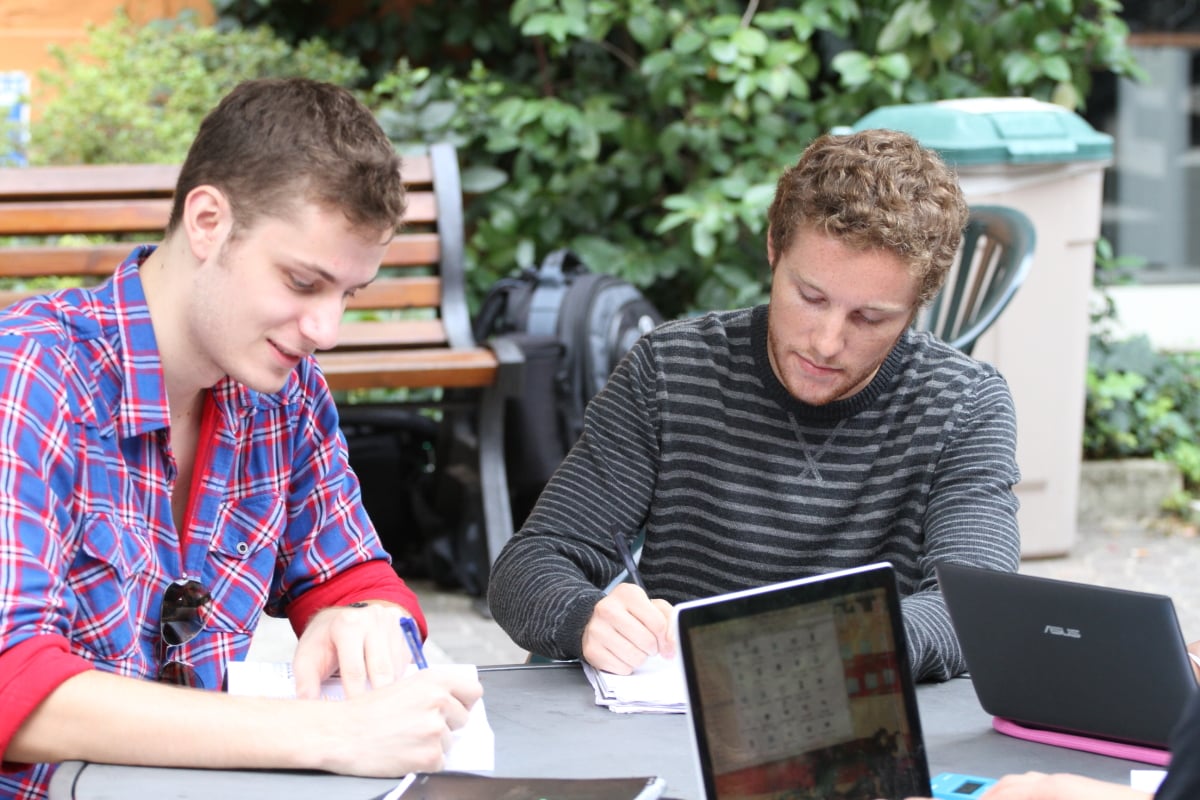

Your time abroad can lead to opportunities beyond memories that last a lifetime. While you work hard to earn your credits with your new international group of friends, you’ll also be developing key life skills that can translate into long-term career success.
If you’re thinking about studying abroad, you might have already imagined how wonderful it can be to do so in a beautiful cultural city like Rome. Here at John Cabot University (JCU), our students spend their time studying amidst some of the most spectacular and historically significant art and architecture the world has to offer. However, it’s also important for students to consider how their time abroad will translate into employment and further opportunities down the road.
With just a few effective strategies, you can showcase your transformative study abroad experience on your resume in a way employers will appreciate! Read on to learn our top tips.
Recognize the Real-World Skills You Get From a Study Abroad Experience
To make the most out of your time abroad, be open to the particular ways this experience can help you develop as a person. Keep an open mind to this transformation, and take note of any circumstances you encounter abroad that challenge you or teach you something new.
Independence, time management, money management, and adaptability are some of the most common traits study abroad students develop throughout their time away from home. It takes independence to navigate a new city with confidence, and time and money management to make your travel budget last. Adapting to a new cultural climate is also great exercise for social skills and personal flexibility you can put to work when settling into a new work environment and adapting to the particular schedule and tasks it entails.

After You Study Abroad in Italy, Strategically Describe Your Experience on Your Resume
After you study abroad in Italy, it’s smart to list your time abroad in the “education” section of your resume, or under its own subheading, such as “international experience.”
While many employers will recognize the inherent value of a study abroad experience, be sure to include a few points along with your program name, country, and dates of study to explain why this experience is relevant to the job at hand.
You can do this by framing your international university experience in terms of job skills. Some skills and traits developed studying abroad that are transferable to the job search include:
- Language and intercultural communication skills
- Problem-solving skills
- Decision-making skills
- Global awareness
- Increased confidence and responsibility
- Networking skills
- Research and writing skills
- Photography skills
And of course, you’ll want to tailor the skills you mention on your resume to suit the job you’re applying for. By customizing your resume to reflect the particular job opening at hand, it’s easier to prove that you’re the ideal candidate. For example, a business management career hopeful might write “developed leadership and intercultural communication skills” under their international experience subheading, strategically informing potential employers of how their experience abroad can apply to working with teams from diverse international backgrounds.

Include the skills you’ve built during your time at JCU in your resume
Go the Extra Mile With Extra-Curriculars
When you study abroad, there are dozens of exciting extra-curricular opportunities to explore. Clubs and teams can help you hone your leadership skills. Guest speakers and symposiums can give you insights into your chosen professional field.
At schools like JCU, you can even get an internship while you study abroad. For example, if you choose to study art history, you can intern at some of Rome’s museums and galleries, putting your knowledge into practice and gaining valuable job experience.
Get set to impress future employers by attending one of the top international universities in Italy!
Contact JCU to learn more about attending an American university in Rome.




